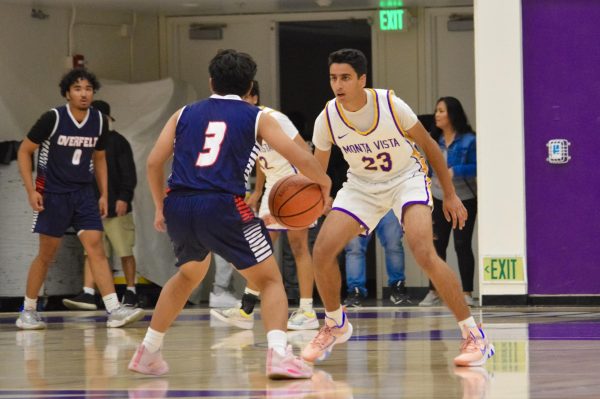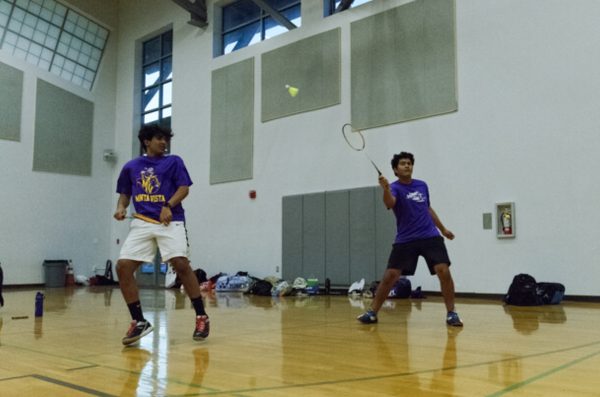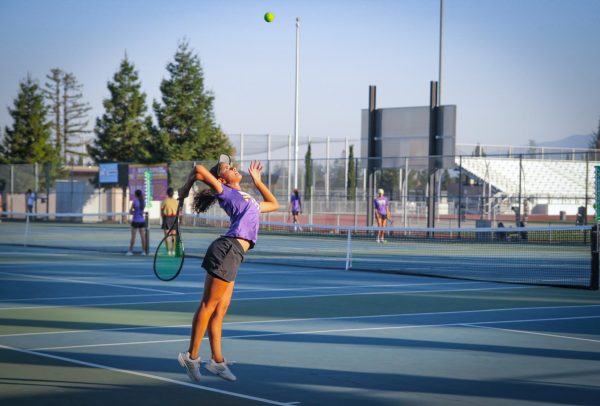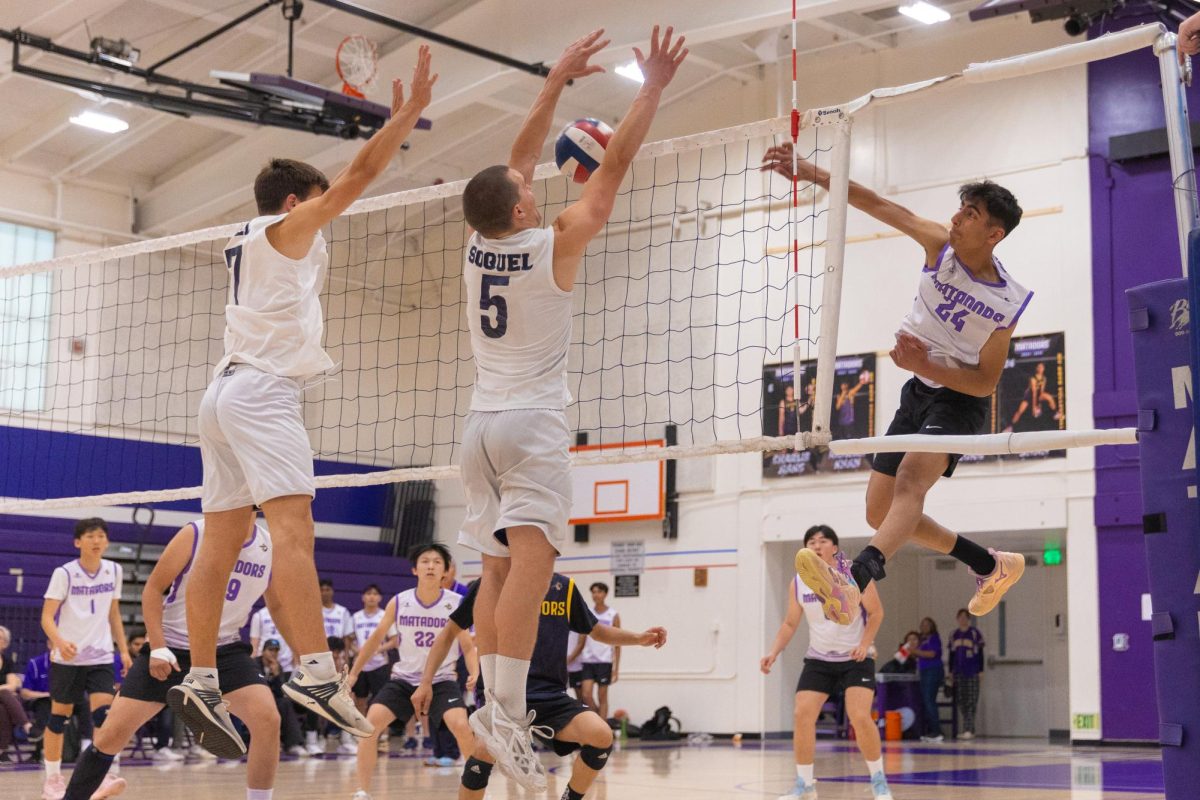Home court advantage is the idea that a team has an advantage playing on its home court. Junior and basketball player Parth Upadhyay shares that although this advantage remains unnoticeable in some sports, in others, it is a prominent factor in the outcome of the game.
Through his four years on the MV badminton team, senior Shiven Bhatt finds that home court advantage is also prominent in badminton. Ranging from the upper hand of being familiar with the physical characteristics of the gym to knowing the order of games within each matchup, away games offer many drawbacks to visiting players.

“When we have badminton games at home, we are allowed to know the schedule for individual games in advance and that helps us prepare for the game,” Bhatt said. “We know if we should spend more time warming up during the beginning or doing homework before a game, whereas at away games it is generally less organized so we waste a lot more time and games take longer.”
Bhatt also notes how the window placements allow in light at different angles and ceiling heights affect how high players can hit the birdie without losing a point.
“In Cupertino High School, on one side of the court, the sunlight from the high windows would come in and mess up your vision when you were looking for the birdie,” Bhatt said. “I noticed that a few people lost their game because of that reason: they were in a close game and towards the end they just could not see the birdie and they missed it.”
Likewise, junior and tennis player Niranjana Sankar identifies the differing tennis courts as a key contributing factor to games. She explains that the slopes of certain courts and varying directions of sunlight often make an impact when playing at other schools.

“When you serve in tennis, you do not want to be staring directly into the sun and sometimes you are caught off guard when you go to a new school where your vision is directly in the sun,” Sankar said. “So it definitely just takes you off your game.”
Upadhyay also highlights the significance of the presence of spectators in the audience. He explains how the proximity of the audience’s seats to the basketball court can amplify the effects of having more spectators cheer for the home team at away games.
“Whenever we play away games, the audience in the stands is cheering for us to miss and they are just making a lot of noise to distract us, especially while taking free throws,” Upadhyay said. “There is all the noise and distraction they are creating with their hands and feet, so generally I try not to pay attention to that, but sometimes it just gets in your head. That is why sometimes you will miss some shots that you would not miss at home.”
Adding to the effects of advantages on mindsets, Bhatt says going to an unfamiliar place can cause players to not perform at their best. While he personally says he is relatively unfazed by these aspects, he understands why many of his teammates are caught off guard.

“Going to away games is annoying because sometimes their gyms are placed in odd areas so finding it is stressful and players are thrown in an off mindset before the game,” Bhatt said. “The court is more annoying at away games because they have odd lighting or low ceilings. There are also a lot of students who come to watch that can potentially help or cause extra pressure on the players, so it depends on the player themselves.”
Unlike Bhatt, Upadhyay feels that he is often affected by the atmosphere created by the audience and can lose focus. However, he notes how teammates and home spectators can create a stressful environment for players, as they feel the pressure to make the right play.
“I believe that players’ mindsets should be similar whether you are at home or away because you have to have that same mentality,” Upadhyay said. “I feel that whenever you are at home, there is extra pressure because the audience, teammates and everyone [watching] is counting on you to make the bucket. But personally, I am trying to work on turning that negative energy into positive energy and trying to make it work for me.”









